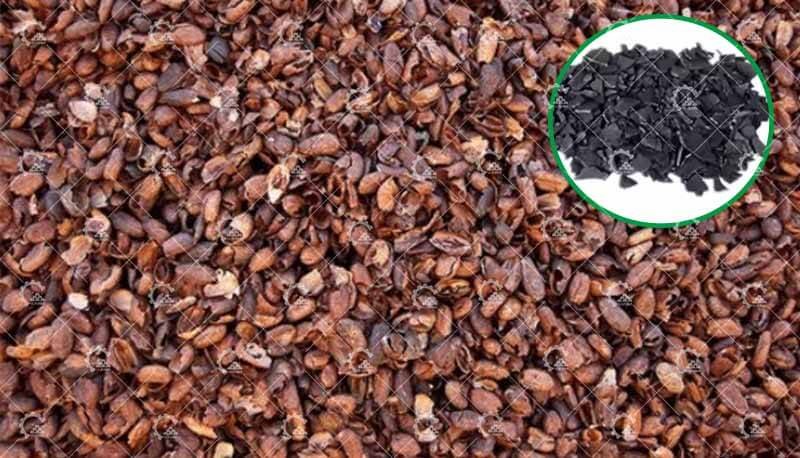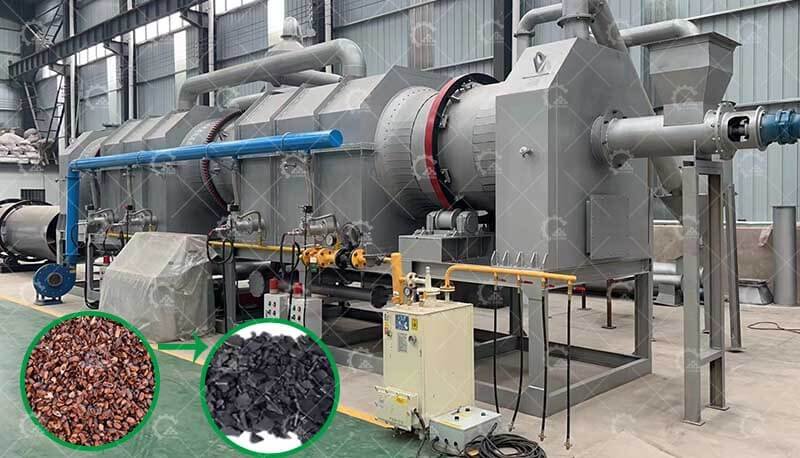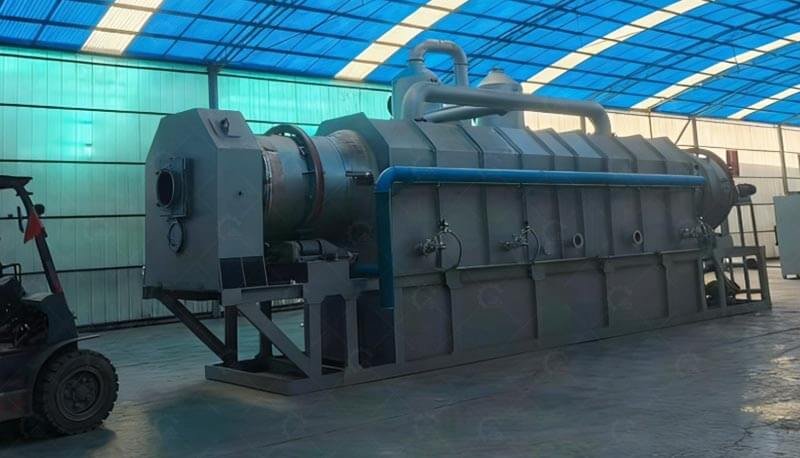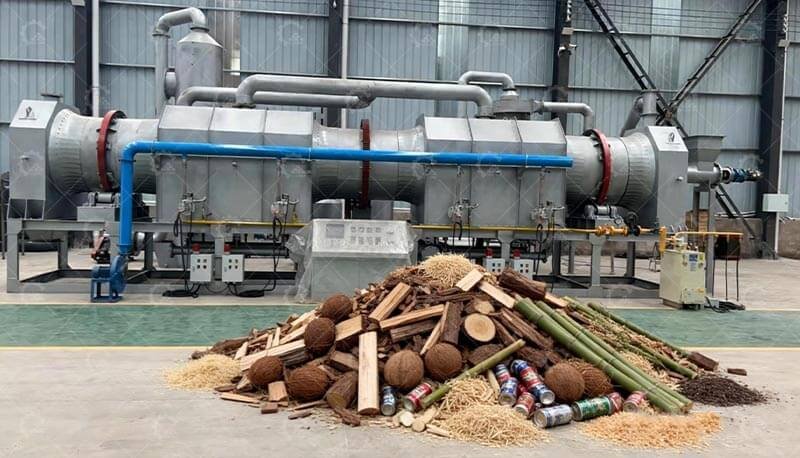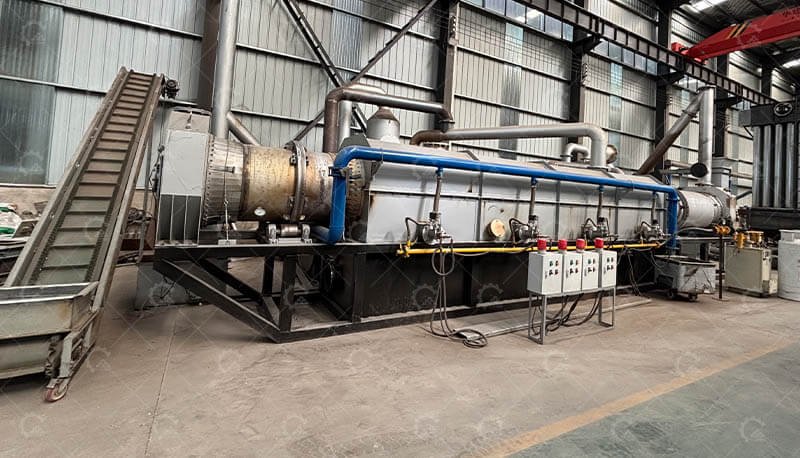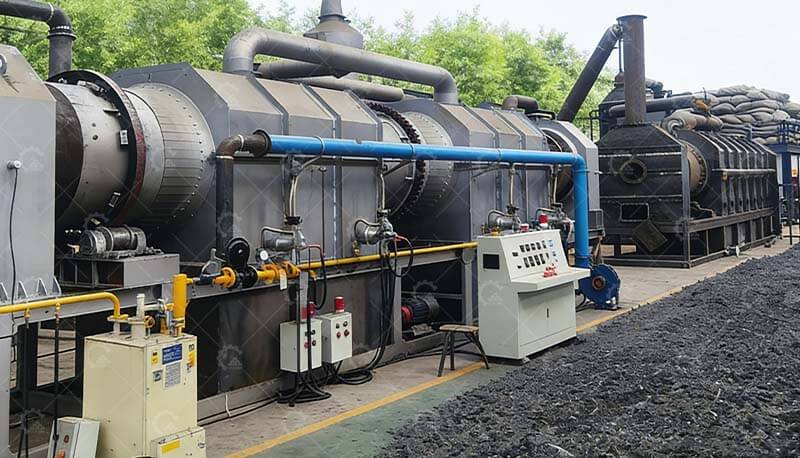In the global coffee industry, millions of tons of coffee bean shells (husks) are discarded annually, posing significant environmental and economic challenges. However, the Coffee Bean Shell Carbonization Machine offers a groundbreaking solution by converting this agricultural byproduct into valuable resources like biochar, activated carbon, and renewable energy.
Why Coffee Bean Shells Matter
Coffee bean shells account for 7–10% of the weight of processed coffee beans. Traditionally, these shells are either burned inefficiently (releasing harmful emissions) or left to decompose, causing methane emissions. With the Coffee Bean Shell Carbonization Machine, however, this waste stream becomes a profitable resource. By carbonizing the shells in a controlled, low-oxygen environment, the machine transforms them into biochar, a carbon-rich material with applications in agriculture, soil enhancement, and carbon sequestration.
Key Benefits of the Machine
1. Eco-Friendly Waste Management
Eliminate open burning and landfilling, reducing greenhouse gas emissions by up to 90%.
2. Revenue Diversification
Sell biochar as a soil amendment, activated carbon for water filtration, or even produce syngas for on-site energy needs.
3. Cost Efficiency
Modern machines require minimal labor and energy input, with many models featuring automated feeding, temperature control, and byproduct recovery systems.
4. Scalability
Available in batch and continuous processing models to suit small-scale cooperatives or large industrial operations.
How It Works: A Step-by-Step Process
1. Drying: Coffee shells are dried to reduce moisture content (typically below 15%).
2. Carbonization: The shells are heated in a sealed chamber at 400–700°C under low oxygen, breaking down organic matter into biochar.
3. Byproduct Recovery: The process generates syngas (used for energy) and bio-oil, maximizing resource efficiency.
4. Cooling & Packaging: The final biochar is cooled, crushed, and packaged for sale or on-farm use.
Who Should Invest?
Coffee Producers
Turn waste into a revenue stream while improving your sustainability profile.
Biochar Manufacturers
Expand raw material sources with a low-cost, high-yield feedstock.
Renewable Energy Companies
Integrate biomass carbonization into circular energy systems.
Organic Farmers
Use biochar to enhance soil fertility, retain moisture, and sequester carbon.
Why Choose Guanma Machinery Coffee Bean Shell Carbonization Machine Over Competitors?
Unlike generic biomass carbonizers, the Coffee Bean Shell Carbonization Machine is engineered specifically for coffee husks. Features like anti-clogging nozzles, rapid cooling systems, and modular designs ensure optimal performance with minimal downtime.
In regions like Colombia and Vietnam, coffee cooperatives using this technology have reduced waste by 80% while generating $500–$1,000 per ton of biochar sold. For instance, a 5-ton-per-day machine can process 300 tons annually, yielding 120 tons of biochar and 60 tons of syngas—enough to power a small processing plant.
The Coffee Bean Shell Carbonization Machine is more than an industrial tool—it’s a bridge to a circular economy. By addressing waste, energy, and sustainability challenges simultaneously, it empowers businesses to align with global ESG goals while boosting profitability. Whether you’re a coffee grower, a biochar producer, or a green energy innovator, this machine offers a scalable, eco-friendly solution to unlock value from coffee waste.
Ready to transform your coffee waste into profit? Explore our advanced carbonization systems and discover how your business can lead the charge in sustainable agriculture.

